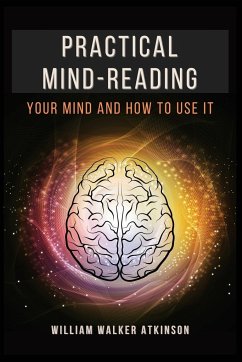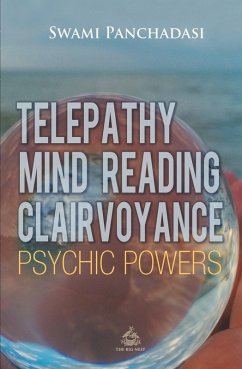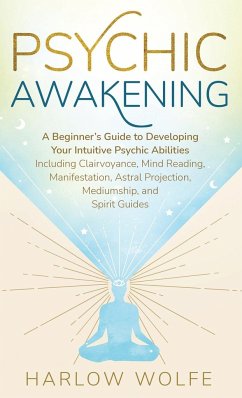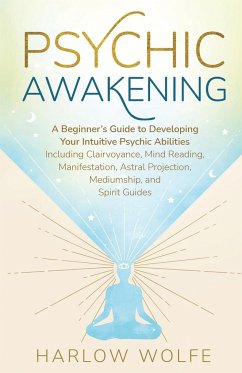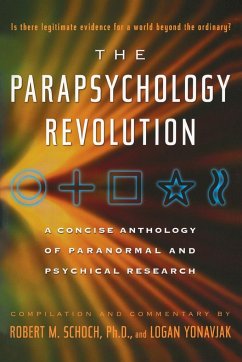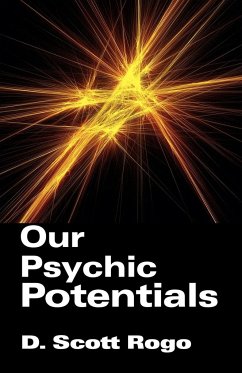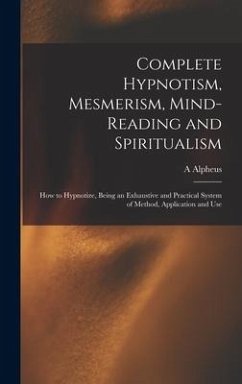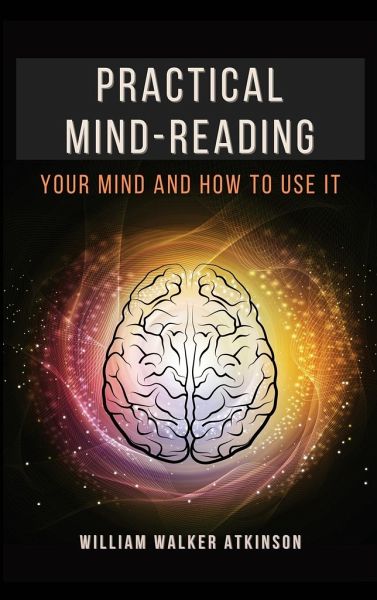
Practical Mind-Reading
Your Mind and How to Use It
Versandkostenfrei!
Versandfertig in 1-2 Wochen
21,99 €
inkl. MwSt.

PAYBACK Punkte
11 °P sammeln!
"It is not enough merely to have a sound mind-one must also learn how to use it, if he would become mentally efficient." -W. W. ATKINSON William Walker Atkinson was an American pioneer of the New Thought movement. This two books are a series of lessons in psychic influence, mind-reading, telepathy, thought-force, concentration, will-power, and practical mental science. It's a real practical guide to the psychology of the mind that you can apply to your everyday life. If you want to discover how to unlock your mental abilities, then begin reading... TWO TEXTS: 1/PRACTICAL MIND-READING: A COURSE...
"It is not enough merely to have a sound mind-one must also learn how to use it, if he would become mentally efficient." -W. W. ATKINSON William Walker Atkinson was an American pioneer of the New Thought movement. This two books are a series of lessons in psychic influence, mind-reading, telepathy, thought-force, concentration, will-power, and practical mental science. It's a real practical guide to the psychology of the mind that you can apply to your everyday life. If you want to discover how to unlock your mental abilities, then begin reading... TWO TEXTS: 1/PRACTICAL MIND-READING: A COURSE OF LESSONS ON THOUGHT-TRANSFERENCE, TELEPATHY, MENTAL-CURRENTS, MENTAL RAPPORT, &c. containing Practical Instruction, Exercises, Directions, etc., capable of being understood, mastered and demonstrated by any person of average intelligence. 2/YOUR MIND AND HOW TO USE IT: A Manual of Practical Psychology Excerpt: "Nearly everyone has had evidences of Mind Reading or Thought Transference in his or her own life. Nearly every one has had experiences of being in a person's company when one of the two would make a remark and the other, somewhat startled, would exclaim, "Why, that's just what I was going to say," or words to that effect. Nearly every one has had experiences of knowing what a second person was going to say before the person spoke. And, likewise common is the experience of thinking of a person a few moments before the person came into sight. Many of us have suddenly found ourselves thinking of a person who had been out of our minds for months, or years, when all of a sudden the person himself would appear. These instances are so common as to be generally recognized, without question. These occurrences have given rise to the two common "sayings," viz., "Speak of the devil and his imps appear," or "Speak of angels and you hear the rustle of their wings.""



